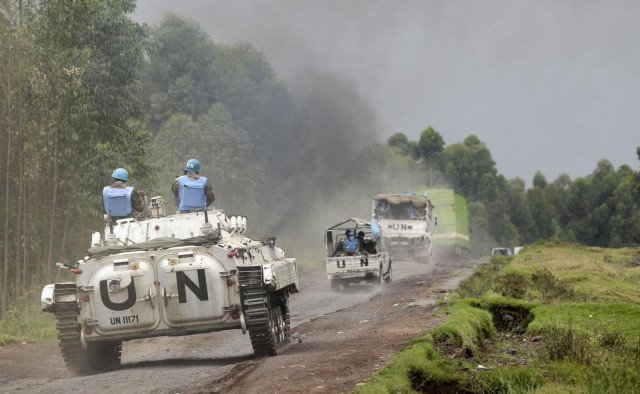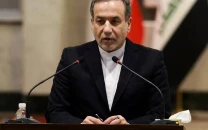US austerity steps punch hole in UN peacekeeping budget
Peacekeeping financing is determined by a complicated formula that takes into account a country’s wealth

PHOTO: REUTERS
United Nations Secretary-General Antonio Guterres arrived in Washington on Wednesday for talks with US Secretary of State Mike Pompeo and National Security Adviser John Bolton, as well as key Congress members on the peacekeeping budget.
The US, which is the number one financial contributor to the United Nations, said in December last year that it would cover no more than 25% of the UN’s multi-billion-dollar peacekeeping budget, down from 28.47%.
To make up for the revenue loss, the UN withheld payments to countries that contribute troops. At the end of January, Ethiopia was owed $41.6 million for its blue helmets, India $40.5 million and Pakistan $35.7 million, according to the UN peacekeeping department.
Guterres’ talks with Pompeo and Bolton are also expected to touch on Yemen and Venezuela. On Thursday, the UN chief heads to Congress for meetings on the budget, hoping to make allies in his campaign to keep the world’s peacekeeping operations afloat.
The US cost-cutting has created a hole of about $220 million in this year’s $6.7 billion budget, but the shortfall has been compounded by arrears that have pushed peacekeeping finances further into the red. In January, unpaid contributions totalled nearly $2 billion, with the US failing to pay a large chunk of it.
Pakistan meets UN target of female participation in peacekeeping operations: FO
Peacekeeping financing is determined by a complicated formula that takes into account a country’s wealth, whether or not it is a permanent Security Council member and other factors. The permanent Council members, which have veto power, generally pay more than others.
Washington has been trying to convince several countries to reduce the special discounts allocated to them under this formula in order to cover the $220 million annually which it no longer wants to pay. It has knocked on the doors of Saudi Arabia, Qatar, the UAE, Turkey, Singapore, Brunei, Brazil, Mexico and India, but to no avail.
Guterres is hoping to discuss other ways to address the budget shortfall such as allowing transfers of funds from one peace mission to another, an idea opposed by some countries which insist their funding should go to specific operations, diplomats said.
Another proposal would be to create a fund with revenue left over from a mission’s budget instead of reimbursing member-states as is currently the case. UN diplomats argue that blue helmet operations are in Washington’s interest and that the cost of US military engagement in many trouble spots would be much higher without the UN.
To cave into US demands and “give more would be to tell them they’re right,” said a UN diplomat. More than 100,000 peacekeepers are deployed in 14 missions worldwide including major operations in the Democratic Republic of Congo, Mali and South Sudan that cost more than $1 billion annually to run.


















COMMENTS
Comments are moderated and generally will be posted if they are on-topic and not abusive.
For more information, please see our Comments FAQ